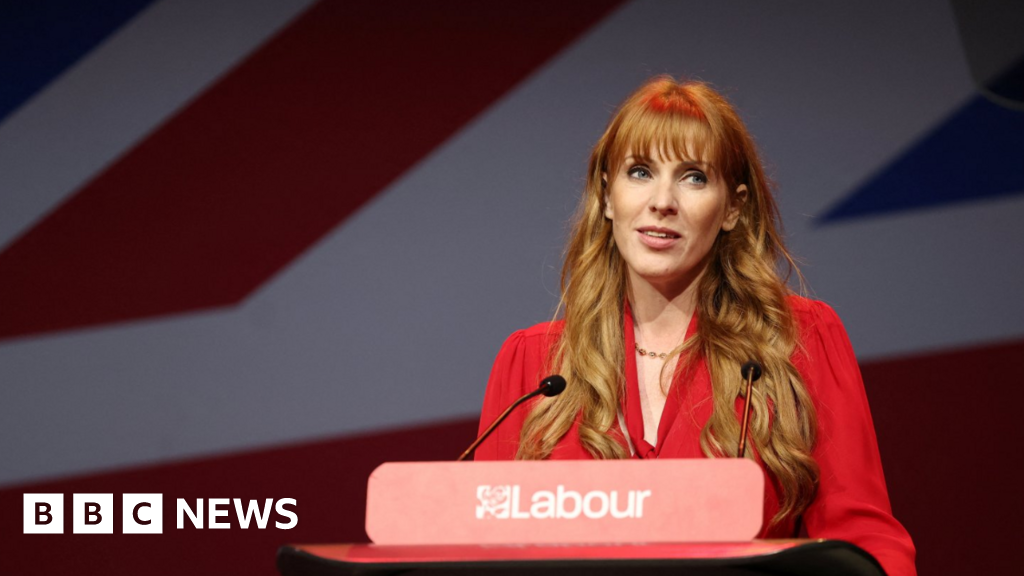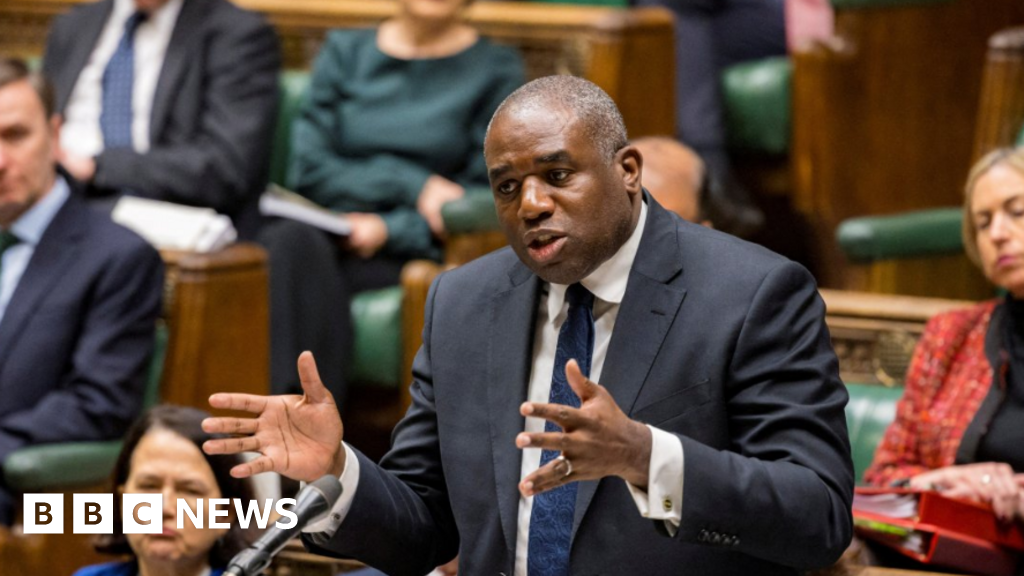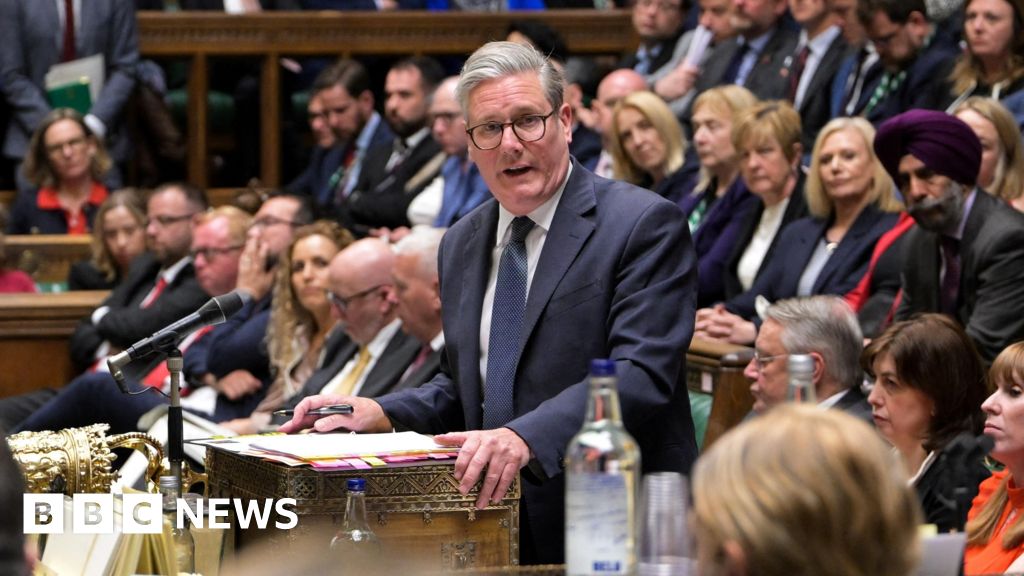ARTICLE AD BOX
Image source, Getty Images
Countries are being urged to strengthen their carbon-cutting targets by the end of 2022 in a draft agreement published at the COP26 Glasgow climate summit.
The document says vulnerable nations must get more help to cope with the deadly impacts of global warming.
It also says countries should submit long-term strategies for reaching net-zero by the end of next year.
Critics have said the draft pact does not go far enough but others welcomed its focus on the 1.5C target.
The document, which has been published by the UK COP26 presidency, will have to be negotiated and agreed by countries attending the talks.
The document may be just seven pages long but it attempts to steer COP26 towards a series of significant steps that will prevent global temperature rises going above 1.5C this century.
Perhaps the most important part of that is getting countries to improve their carbon cutting plans.
To that end this draft decision urges parties to "revisit and strengthen the 2030 targets in their nationally-determined contributions, as necessary to align with the Paris Agreement temperature goal by the end of 2022".
It will be interesting to see how countries such as China, India, Brazil and Saudi Arabia respond to this request to put new plans on the table by the end of next year.
There is some comfort for developing countries to see that their financial needs are recognised as countries are asked to mobilise climate finance "beyond $100bn a year" and the draft welcomes steps to put in place a much larger, though as yet unspecified, figure for support from 2025.
Loss and damage, an issue of key importance to the developing world, is included in the draft with encouragement to richer countries to scale up their action and support including finance for poorer nations.
The document also calls on countries to accelerate the phase out of coal and subsidies for fossil fuels - but has no firm dates or targets on this issue. Campaigners will welcome the inclusion and will hope it survives into the final text.
As well as asking countries to come back by the end of next year with a new, improved short-term carbon cutting plan, the draft also proposes that by the same date, countries should submit long-term strategies for reaching net-zero.
Scientists have warned that keeping temperature rises to 1.5C - beyond which the worst impacts of climate change will be felt - requires global emissions to be cut by 45% by 2030 and to zero overall by mid-century.
The document also proposes an annual high-level ministerial round table on pre-2030 ambition, beginning at next year's COP conference, likely to be in Egypt.
To further underline the importance of the 2030 target, the draft also asks the UN secretary general to convene world leaders in 2023 to consider how efforts are shaping up.
David Waskow, from the World Resources Institute, said there would be opposition to the idea of coming back with new plans next year but it would come from different groups of countries.
"On the question of the revisiting and strengthening of targets, there are certainly parties who have been pushing back, the Saudis and Russians have been quite clear on that, others have been less blunt," he said.
"The other countries who are pushing back are many of the vulnerable countries, who don't comprise that large percentage of global emissions often or have very limited resources to develop nationally-determined contributions and then to implement them."
'Cross our fingers and hope'
Loss and damage, an issue of key importance to the developing world, has been included in the draft with encouragement to richer countries to scale up their action and support, including finance for poorer nations.
But campaigners said these parts of the text were weak and were essentially a "box ticking exercise".
The document also calls on countries to accelerate the phasing out of coal and subsidies for fossil fuels - but has no firm dates or targets on this issue.
"This draft deal is not a plan to solve the climate crisis, it's an agreement that we'll all cross our fingers and hope for the best," said Jennifer Morgan from Greenpeace International.
Prime Minister Boris Johnson is returning to the COP26 climate summit in Glasgow later and will urge nations to "pull out all the stops" to limit warming.
Speaking ahead of his appearance, Mr Johnson said: "This is bigger than any one country and it is time for nations to put aside differences and come together for our planet and our people," he said.
"We need to pull out all the stops if we're going to keep 1.5C within our grasp."
Research published at the summit on Tuesday indicated the short-term plans put in place by countries would see a rise of 2.4C.
While about 140 nations have pledged to reach net zero emissions by around the middle of the century, scientists have said their short-term plans for 2030 are not strong enough to limit the rise in temperatures.

 3 years ago
54
3 years ago
54








 English (US) ·
English (US) ·